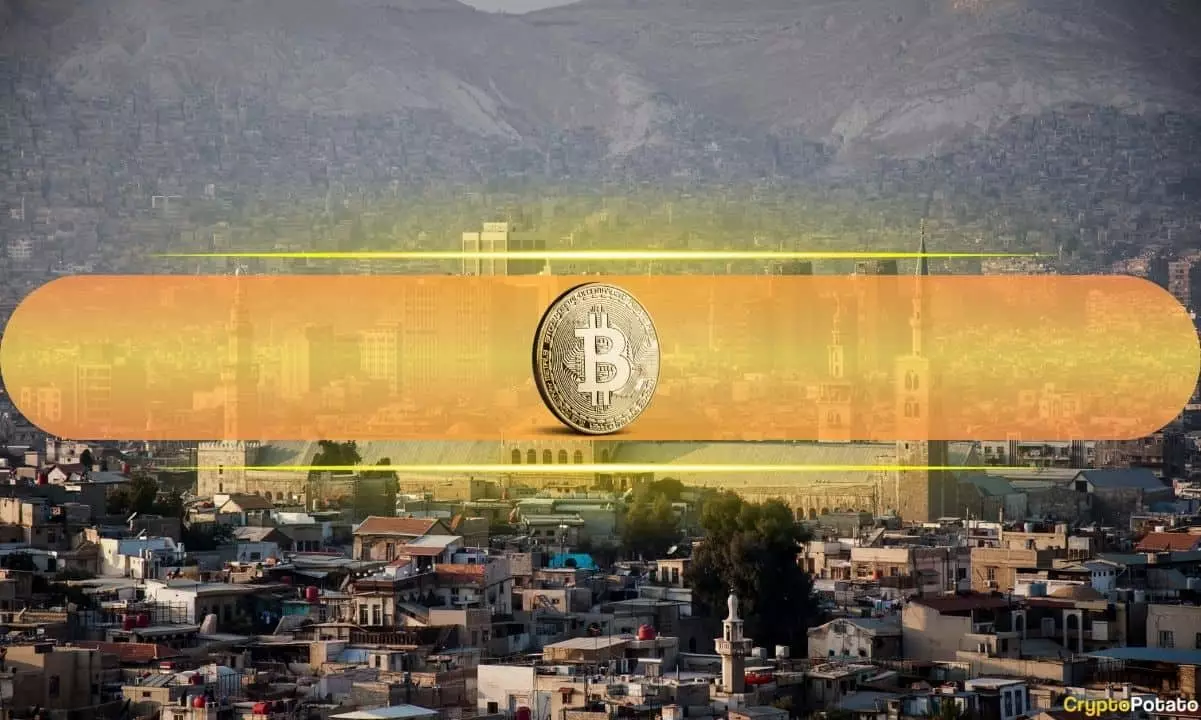In an effort to navigate the overwhelming economic challenges that have burdened Syria for over a decade, the Syrian Center for Economic Research (SCER) has put forth a transformative proposal aimed at legalizing Bitcoin and digitalizing the Syrian pound. This approach reflects a significant departure from traditional monetary practices and is designed to lay the groundwork for a robust digital economy, which could potentially revitalize the nation’s financial landscape. The ambitious plan seeks to address the dire state of the economy marked by hyperinflation, a devalued national currency, and an overall lack of investor confidence, all of which have been exacerbated by years of conflict and turmoil.
Central to SCER’s proposal is a reimagining of Syria’s monetary policy through the digitization of the Syrian pound, which would be supported by tangible assets such as gold. By utilizing blockchain technology, the initiative aims to enhance the currency’s security and transparency. Legalizing Bitcoin and other cryptocurrencies would not only provide a stable alternative to the weakened national currency but also establish a legal framework that promotes the exchange, trading, and mining of digital assets. This dual focus on both traditional and innovative banking structures could aid in stabilizing inflation and attract foreign investments desperately needed for economic recovery.
Perhaps the most compelling aspect of this initiative is its potential to empower Syrian entrepreneurs and innovators. In a country where monopolistic practices have stifled economic growth, the proposal advocates for a free-market environment that encourages competition and creativity. By establishing clear regulations surrounding digital assets, it seeks to instill confidence in both local and foreign investors. Particularly noteworthy is the emphasis on private property rights, which allows citizens to maintain full custody of their digital assets, further bolstering entrepreneurial ventures and the startup ecosystem within the country.
Despite the promise of such a transformative economic strategy, the SCER proposal is not without its challenges. Syria’s technological infrastructure remains underdeveloped, which could impede the implementation of a comprehensive digital banking system. Furthermore, the general public’s limited awareness of cryptocurrencies poses an additional barrier to acceptance and adoption. The initiative must also navigate the complex geopolitical landscape that has historically hindered the country’s recovery efforts. The transitional government’s lack of immediate interest in such a proposal only underscores the pressing need to address more immediate humanitarian and political issues.
In a recent turn of events, Syria’s new Foreign Minister, Asaad Hassan al-Shibani, has emphasized the urgent need to relieve international sanctions that have long impacted the country’s ability to recover. Al-Shibani argues that these measures, initially intended to pressure the former Assad regime, have now become counterproductive and detrimental to ordinary citizens. His call for reconsideration of these sanctions aligns with SCER’s proposal, suggesting that a legislative shift towards a digital economy would only be viable in an environment with reduced external pressures.
The proposal by SCER serves as a beacon of hope for a country that has suffered from an entrenched economic crisis. Legalizing Bitcoin and digitizing the Syrian pound could enhance financial transparency, bolster entrepreneurial opportunities, and promote a culture of innovation. However, it is essential for the transitional government and international stakeholders to consider the implications of such a shift as they work towards a more stable economic framework. With the right investments in technology and infrastructure, coupled with a supportive regulatory environment, Syria could take substantial steps towards recovery and prosperity in a post-war era. As the nation stands on the brink of critical change, the vision presented by SCER may well be the catalyst for a brighter economic future.















Leave a Reply